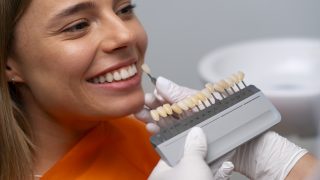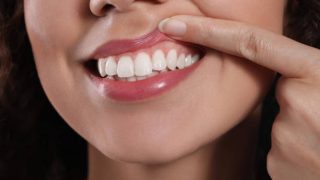Bad breath, otherwise known as halitosis, can be very mortifying and may prove to be persistent. This paper intends to help one keep fresh breath and good oral hygiene through its causes, treatment options, and prevention strategies. Since publishers of health books have already discussed the probable causes of bad breath, effective treatments of continual bad breath, including morning bad breath, previously, this current research focuses on definite solutions in fighting bad breath.
Causes of Bad Breath
Some causes of bad breath include:
Poor Oral Hygiene: A non-regular brushing or flossing leads to retaining food inside the mouth, hence resulting in bad breath. Besides that, plaque and bacteria on the tongue are another cause of it.
Diet: Like garlic, onions, and spicy foods may start some. These foods release sulfur compounds that, after absorption into the blood stream, come out through exhalation from the lungs.
Xerostomia: Saliva cleans the mouth removing leftover food and bacteria. Dry mouth can cause you bad breath due to the little saliva cleaning out leftovers.
Tobacco Products: Smoking and tobacco products can give bad breath continuously. Tobacco also encourages development of gum diseases that are yet another cause of bad breath.
Medical Conditions: Sinus infections, respiratory infections, diabetes, and gastrointestinal issues are some of the medical conditions that might cause bad breath.
Morning Bad Breath: Most people wake up stinking in the mornings. While a person is sleeping, very little saliva is produced; hence, the dry environment enables bacteria to thrive, thus accounting for the bad breath in the morning.
Treatments for Bad Breath
The treatment of bad breath depends on the causes; hence, the causes have to be determined first. Some of the effective treatments include:
Maintain Oral Hygiene: Brush at least twice a day and floss once a day for the removal of any residual food particles and plaque. Do not forget to brush your tongue as it can also harbor bacteria.
Stay Hydrated: Drink enough water throughout the day so that your mouth gets moistened, and the food particles and bacteria get washed away.
Use a mouth wash: Any antibacterial mouthwash will help kill bacteria, which, after all, are the cause of bad breath. Look for mouthwashes that have chlorhexidine or cetylpyridinium chloride as their ingredients.
Chew Sugar-Free Gum: Chewing raises the secretion of saliva and cleanses the mouth. Opt for sugar-free gum since regular gum is going to promote tooth cavity formation.
Avoid Bad Breath-Inducing Food: Try to avoid the foods mainly, garlic, onions, and spicy foods that cause bad breath.
Quit Smoking: If you are a smoker or use tobacco products, then quitting will help to improve not just your breath but also your oral health.
Chronic Halitosis
If you always have bad breath despite good oral hygiene, it may indicate another potentially more serious problem. The bad breath could be the sign of a significant health problem that includes:
Gum disease: Periodontal disease can also cause halitosis. If your gums are red, swollen, or bleed easily, see your dentist for an examination and treatment.
Sinus Infections: This can lead to chronic sinus infections, accompanied by postnasal drip, thereby causing bad breath. Treatment of the infection may help in minimizing bad breath.
Gastrointestinal Problems: Disorders related to acid reflux or gastroesophageal reflux disease may be the cause of bad breath. It is advisable to consult a doctor for a proper diagnosis and treatment.
Diabetes: In diabetes, if a person does not control their sugar levels, they could develop a foul problem named ketoacidosis that gives breath a fruity odor. Maintaining diabetes by taking prescribed medicine and changes in diet and exercising habits help.
Permanent Remedies to Bad Breath
If one wants permanent solutions to their bad breath, then following are the steps:
Regular Dental Visits: Regularly visit your dentist for a checkup and cleaning. A lot of tartar and plaque are removed in this process. Your dentist will not only clean the visible tartar and plaque from your teeth but will look for any other oral health problems which might be causing bad breath.
Professional Cleanings: Professional dental cleanings go into areas regular brushing and flossing sometimes cannot remove bacteria and plaque.
Tongue Scraping: Make sure to scrape your tongue since bacteria and food particles sit on the surface and cause bad breath.
Dietary Changes: Consume a lot of fruits and vegetables as they encourage the flow of saliva, which is good for oral health.
Medical Conditions Management: Since bad breath in many individuals stems from some medical conditions, the worst of their symptoms can be managed by fighting these conditions at best through professional help.
Morning Bad Breath
Many people wake up with morning bad breath, mainly because of the low production of saliva during sleep. Here are some tips to fight morning breath:
Brushing Before Bed: Clean your teeth well before attaining sleep, in order to brush off all foodstuffs and bacteria.
Hydrate Before Sleep: Drink at least one glass of water before you go to sleep.
Use a Humidifier: A room humidifier can help to keep the air moist, which may relieve dry mouth and bad breath.
Limit alcohol and caffeine: Both of these are known drying agents. So, try as much as possible to reduce their consumption, especially at bedtime.
Saliva Stimulant: Take a saliva substitute or chew sugar-free gum before retiring to bed to keep your mouth moist
Everyone at one time or another suffers from bad breath, but the good news is that it can easily be managed if one knows how. Dealing with bad breath will have to be based on understanding what causes it, ranging from poor oral hygiene to medical conditions. Keeping good oral hygiene, being hydrated, and seeking professional dental care are sure ways to effectively fight bad breath. In case of persistent bad breath, identification and treatment of underlying conditions are very important. Finally, some really simple habits to get you up and running each morning with fresher breath. You can achieve and maintain fresh breath for enhanced confidence and overall improved oral health using these tips.






